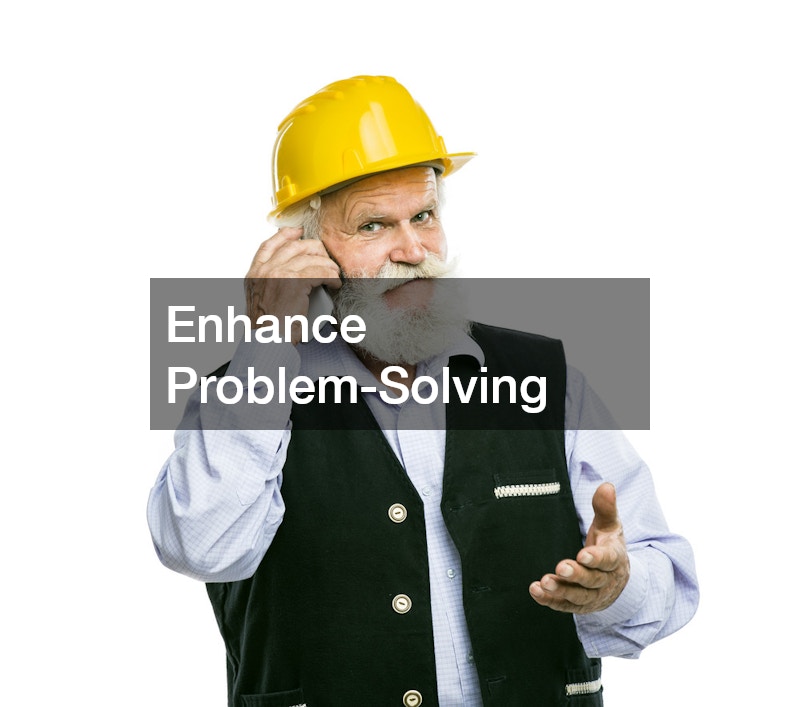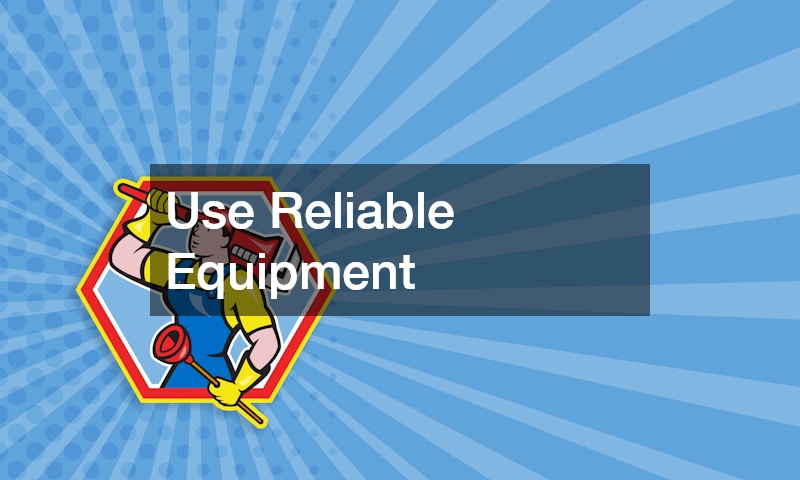Embarking on a career in septic tank services offers a unique blend of job security, essential service provision, and the chance to learn a specialized skill set. Given the growing demand for environmentally conscious waste management solutions, this field has gained increased relevance. Your journey towards achieving expertise in this niche field requires more than technical know-how; it involves a dedication to mastering industry basics, sharpening core skills, and committing to continuous improvement through a lifelong learning mindset. This guide aims to provide comprehensive insights into building a promising career in septic tank services, covering crucial aspects such as mastering industry essentials, enhancing problem-solving capabilities, and keeping abreast of current regulations. At each step, we’ll emphasize the necessity of a lifelong learning mindset to ensure sustained professional growth and adaptability in this dynamic field.
Master the Industry Basics
Understanding the fundamentals of the septic tank service industry is essential. Septic pumping is at the core of these services, involving the removal of sludge and solid waste from septic tanks to ensure their proper functioning. This task is not only vital for maintaining the efficiency of waste systems but also pivotal for meeting environmental standards. As someone new to the field, familiarizing yourself with septic pumping and its importance can set a solid foundation for a successful career.
To gain practical knowledge in septic pumping, engaging in hands-on training and learning about different types of septic systems is crucial. This specific understanding helps in recognizing the common issues that can arise and the most efficient methods to address them. A lifelong learning mindset can enhance your ability to stay updated with technological advancements and industry practices, making you adept at handling diverse challenges in septic pumping.
By mastering the basics, you build a strong base from which you can expand your skills and capabilities. This involves not only understanding the mechanics of septic systems but also networking with industry experts who can provide invaluable insights. Leveraging a lifelong learning mindset ensures that as new methods and technologies emerge, you can incorporate them into your practice, ultimately becoming a trusted expert in septic pumping.
Sharpen Your Core Skills
Core skills in the septic tank service industry include technical proficiency, problem-solving, and customer service capabilities. At the heart of these skills is the ability to perform efficient pumping services, ensuring that septic tanks operate optimally. Developing these core competencies is essential for those who wish to stand out and succeed in the competitive septic services landscape.
Focusing on specific skills, such as operating pumping equipment effectively or diagnosing and fixing common septic system issues, can significantly enhance your competence. Participating in workshops or certification programs that specialize in these areas can be advantageous. Adopting a lifelong learning mindset helps you remain adept at tackling diverse and evolving technical challenges within this domain.
As you enhance your core skills, it’s important to cultivate a customer-first approach. Excellent communication skills, coupled with technical prowess, can help in explaining complex septic issues to clients with ease and ensuring their satisfaction. This commitment to continual improvement through a lifelong learning mindset prepares you to excel in providing superior septic tank services.
Prioritize Safety Training
Safety training is a critical component in the septic tank service industry, where handling hazardous waste is a routine part of the job. Ensuring the safe execution of septic services protects both the technicians and the environment. Mastering safety protocols and regulations is imperative for adhering to industry standards and safeguarding public health.
Specific safety training programs often focus on the proper use of protective gear, handling of hazardous materials, and emergency response procedures. Those who prioritize safety training can identify and mitigate risks associated with septic services more effectively. Incorporating a lifelong learning mindset ensures that new safety measures are quickly adopted and implemented, fostering a culture of safety.
In addition to personal safety, maintaining the integrity of the environment and local ecosystems is vital. Implementing environmentally-friendly practices during septic services can minimize ecological impacts, reflecting your commitment to sustainable practices. Emphasizing safety training, with the aid of a lifelong learning mindset, positions you as a responsible professional dedicated to upholding high industry standards.
Learn Maintenance Tips
Regular maintenance is key to preventing issues in septic systems and prolonging their lifespan. As a professional in this field, understanding essential maintenance tips allows you to offer valuable advice to clients and ensure efficient system performance. This involves routine inspections, timely pumping, and addressing minor problems before they worsen.
Working with experienced septic engineers can provide you with insights into effective maintenance strategies. They can impart knowledge on recognizing early signs of system failure and implementing preventative measures. Cultivating a lifelong learning mindset encourages you to continuously update your maintenance knowledge and techniques.
By learning and applying maintenance tips, you can significantly enhance the reliability and longevity of septic systems. Offering comprehensive services that include regular maintenance checks and personalized advice can differentiate you from competitors. A lifelong learning mindset supports your ability to refine maintenance approaches and integrate the latest best practices into your services.
Get Certified for Success
Certification is an essential step in advancing your career in septic tank services. It demonstrates your commitment to professionalism and accountability, assuring clients of your qualifications and expertise. Pursuing certification in septic tank service can open doors to broader opportunities and foster trust with potential clients.
Several organizations offer certification programs tailored to various aspects of septic services, such as installation, inspection, and repair. These programs typically require a combination of coursework, exams, and hands-on experience. An ongoing commitment to certifications underscores your dedication to excellence and reinforces the lifelong learning mindset in your professional journey.
By getting certified, you not only validate your skills, but also gain confidence in your abilities. Moreover, certifications can boost your marketability and position you as a sought-after professional within the septic service industry. A lifelong learning mindset ensures you stay current with certification requirements and continuously seek ways to enhance your credentials.
Enhance Problem-Solving
Problem-solving is an invaluable skill in the septic tank service industry. Technicians must identify issues quickly and deploy solutions efficiently to maintain client satisfaction and operational success. Developing strong problem-solving abilities is imperative for navigating the complex challenges in local septic replacement and maintenance.
Engaging in problem-solving exercises and scenarios helps build your analytical skills. Learning from peers and experienced professionals in the field can offer diverse perspectives and innovative solutions. With a lifelong learning mindset, you can adapt to new challenges and devise effective strategies for various septic service situations.
By focusing on enhancing your problem-solving skills, you can provide quicker, more efficient solutions to clients, ensuring their systems operate without disruption. Building a reputation for reliability and competence in local septic replacement requires not only technical expertise but also an agile approach to diagnosing and addressing unexpected issues, bolstered by a lifelong learning mindset.
Network With Experts
Networking is crucial in the septic service industry, offering opportunities for collaboration, knowledge exchange, and professional growth. Establishing connections with experts enables you to learn about best practices, emerging trends, and innovative techniques within septic inspection and other services.
Joining industry associations or attending workshops and conferences can expand your professional network. Such interactions introduce you to industry leaders and peer professionals who can offer guidance and mentorship. Maintaining a lifelong learning mindset ensures that you maximize these networking opportunities to benefit your career.
By networking effectively, you can access invaluable resources and support systems that facilitate your professional journey. Building long-lasting relationships with experts in septic inspection and other specialized fields encourages a collaborative approach to solving complex problems and driving industry advancements. A commitment to a lifelong learning mindset further enriches the insights you gain from these interactions.
Use Reliable Equipment
Utilizing reliable equipment is fundamental to executing successful septic system service. High-quality tools and machinery ensure efficiency, precision, and safety in performing tasks such as septic tank installation, repair, and maintenance. Keeping up with technological advancements in equipment is essential for delivering superior service.
Investing in state-of-the-art tools not only enhances the quality of your work but also positions you as a competitive professional in the field. Regularly servicing your equipment and undergoing training to operate modern machinery effectively can differentiate you from competitors. With a lifelong learning mindset, you can stay informed on the latest equipment innovations and integrate them into your practice.
By prioritizing the use of reliable equipment, you improve the accuracy and efficiency of your septic system service offerings. Well-maintained machinery reduces downtime and increases client satisfaction, reinforcing your reputation as a dependable technician. Embracing a lifelong learning mindset supports your efforts to leverage advanced tools and technologies to enhance your services.
Choose Your Specialty
Specializing in a specific area within the septic service industry can set you apart and create niche opportunities. Whether it’s focusing on septic installation, inspection, or repair, specialization allows you to develop deep expertise and cater to a targeted client base. Identifying the specialty that aligns with your skills and interests is an important career decision.
To choose your specialty, consider your strengths, market demand, and personal interests. Gaining experience in various aspects of the industry through internships or job shadowing can provide clarity and direction. A lifelong learning mindset enhances your adaptability, enabling you to explore and excel in your chosen specialty.
Commitment to specialization equips you with advanced skills and knowledge that can distinguish you from generalists. By becoming an expert in septic installation or another area, you can command higher fees and attract more clients, fostering career advancement. This progression is supported by a lifelong learning mindset, which encourages continual development and refinement in your chosen field.
Know Current Regulations
Staying informed about current regulations is crucial in the septic service industry, where compliance with environmental and safety standards is mandatory. Understanding regulatory requirements ensures that you provide septic pumping services that meet legal criteria and protect public health.
Keeping abreast of local and national laws relating to septic systems helps you advise clients accurately and avoid legal issues. Participating in regulatory workshops or continuously reviewing official publications can enhance your awareness and preparedness. A lifelong learning mindset allows you to adapt to regulatory changes swiftly and efficiently.
By aligning your services with current regulations, you build trust and credibility with clients and regulatory bodies. Demonstrating a comprehensive understanding of industry standards in septic pumping services reassures clients of your professionalism and compliance. Adopting a lifelong learning mindset ensures you remain informed and proactive in adhering to evolving regulatory frameworks.
Achieving a fulfilling career in septic tank services involves a combination of mastering technical skills, fostering a lifelong learning mindset, and embracing continuous professional development. This quick guide emphasizes the importance of industry knowledge, skill sharpening, safety prioritization, and specialization selection within the septic services domain. By integrating these elements, you can build a solid foundation for a successful career, characterized by expertise, reliability, and client satisfaction.
The path to excellence in septic services demands dedication, curiosity, and the willingness to continuously improve. Whether you’re mastering the basics of septic pumping or refining your approach to septic installation and inspection, each step in your career journey offers valuable learning opportunities. A lifelong learning mindset not only enhances your adaptability and resilience in a dynamic industry but also propels you forward as you embrace new technologies, trends, and regulations.
In conclusion, pursuing a career in septic tank services can be incredibly rewarding, offering both personal fulfillment and professional growth. By committing to a lifelong learning mindset and embracing the guidance provided in this quick guide, you can achieve success and make a meaningful impact within the field. Your journey towards becoming an esteemed expert in septic services starts today.



